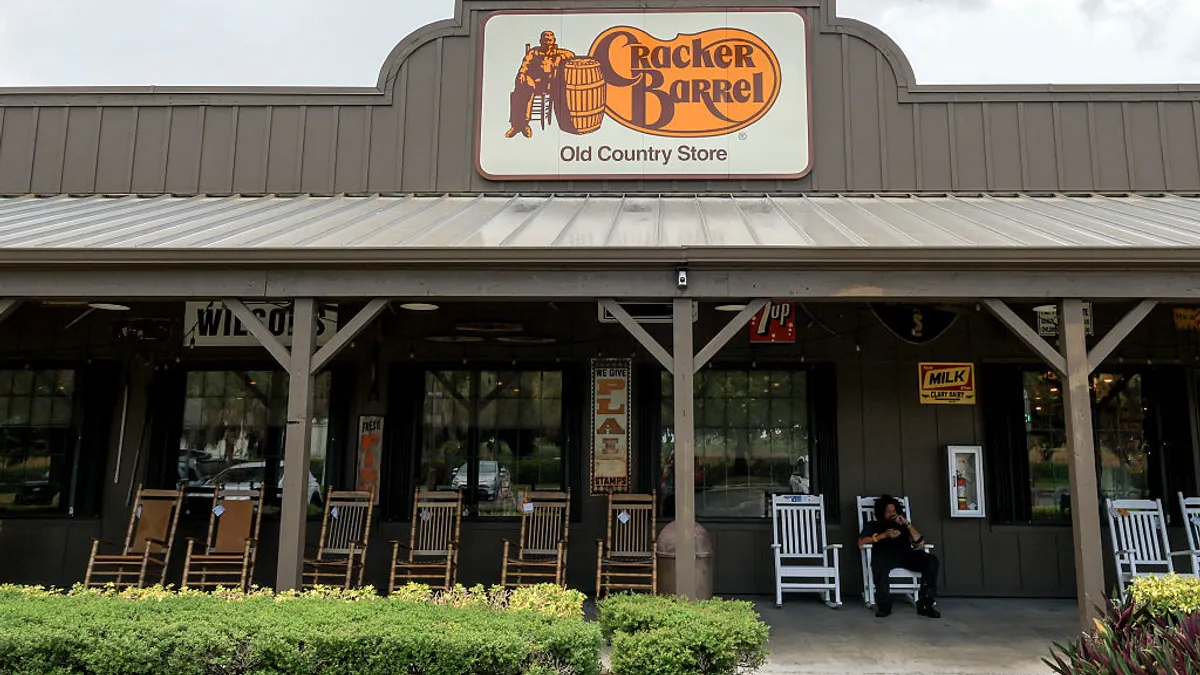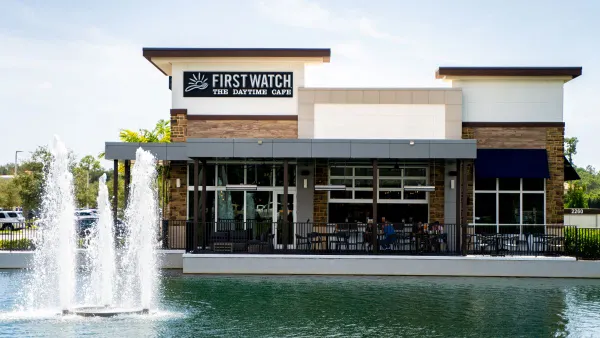Dive Brief:
- Cracker Barrel is shrinking its board from 10 seats to nine after Sardar Biglari failed to oust CEO Julie Masino. Biglari contributed to the successful unseating of board member Gilbert Dávila during voting for the chain’s board, according to a filing with the Securities and Exchange Commission.
- The remaining nine directors were all endorsed by the company prior to the election.
- Dávila, who runs a multi-cultural marketing consultancy, according to his LinkedIn profile, also drew opposition beyond Biglari. Two proxy advisory firms, Institutional Shareholder Services and Glass, Lewis & Co., recommended voting against Dávila but for Masino.
Dive Insight:
The challenge to Masino by Biglari is the latter’s eighth proxy fight with Cracker Barrel in 15 years, according to a separate SEC filing from the company. In a letter to shareholders, Biglari blamed Masino for the backlash to the brand’s logo change and remodel efforts earlier this year. Biglari said a reversal of strategy under Masino would be unconvincing to consumers and described the CEO as “an arsonist-fireman manager.”
While Masino was elected once more to the board, Dávila was not, and he resigned on Nov. 20, according to the 8-K announcing the election results. The company’s board size decreased from 10 to nine members on his departure.
Concurrent with the election, shareholders adopted two changes to the company’s bylaws that could make Biglari’s crusade against Cracker Barrel more difficult.
The first of those changes, an ineligibility provision, bars the renomination of prospective directors for three years if they fail to obtain 20% of the vote or bars renomination for two years if the candidate obtains more than 20% but less than 25% of the vote, according to a draft of the company’s proxy materials. This measure passed with 9.2 million shares in favor and 6.9 million against, per the 8-K.
The second change, which passed by a much wider margin, is more complex. Under the new rule, a shareholder who “nominates one or more director nominees for election (other than pursuant to our Proxy Access Provision) at any two meetings of shareholders at which directors are to be elected (whether or not consecutive) in any five year period,” whose nominees fail to crack 25% of the vote, would end up on the hook for up to $5 million in company expenses related to the proxy fight.
Conversely, if that shareholder’s nominees are elected, the board would be required to reimburse the shareholder up to $5 million in costs for the proxy fight.
Cracker Barrel said these measures were developed in consultation with major shareholders frustrated with Biglari’s long-running battle with the company. In the past, Cracker Barrel put two of Biglari’s nominees on the board in an effort to stop the shareholder activist’s agitation. But Biglari has continued to run proxy fights with the company.
Cracker Barrel, in its proxy material recommendations, framed the bylaw proposals as a response to extreme conditions, and said they should not restrict shareholders from exercising their rights.
“We are unaware of any analogous situation in U.S. corporate history where these provisions would have been triggered outside of the contests Mr. Biglari has waged at Cracker Barrel over the past 15 years,” Carl Berquist, the board chair, wrote in an SEC filing.














